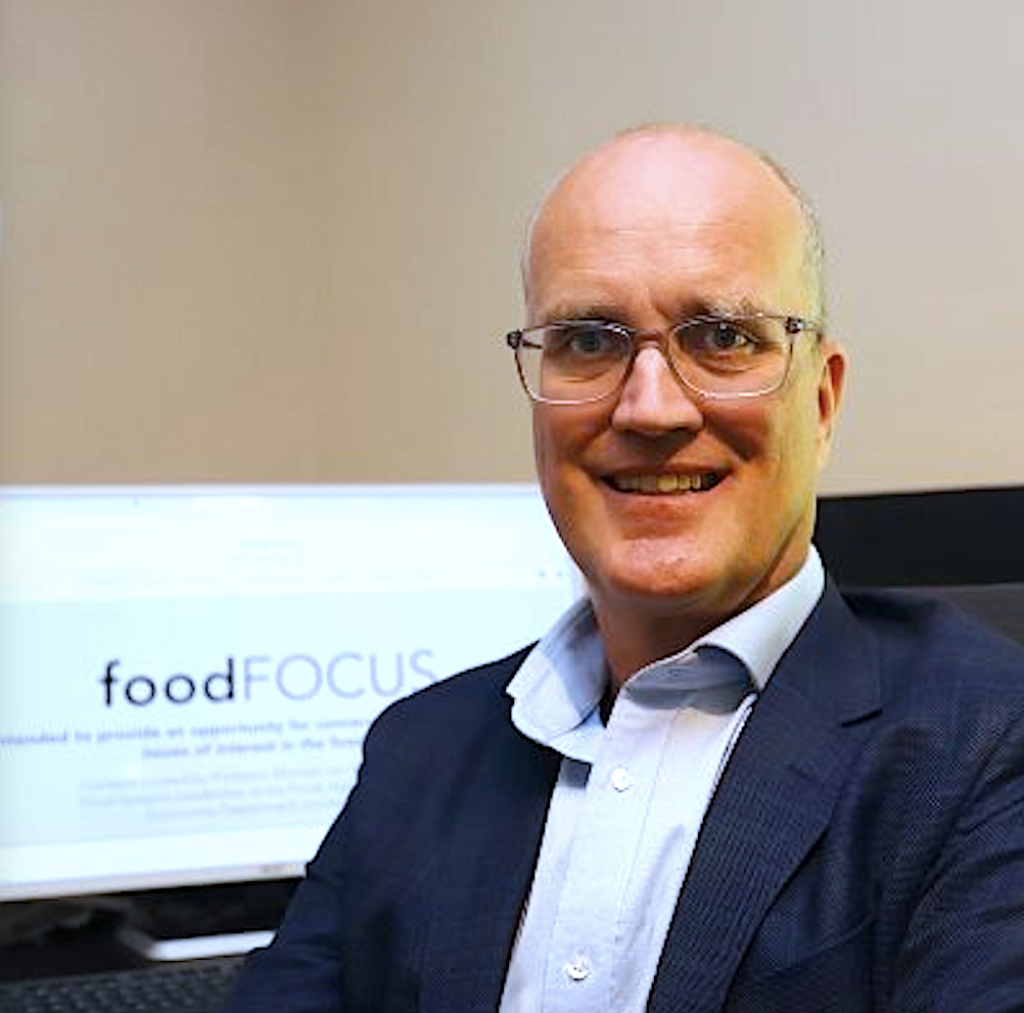
Consumer knowledge and perceptions play a crucial role in shaping the food industry. Dr. Michael von Massow, a Department of Food, Agricultural, and Resource Economics professor at the University of Guelph, recently addressed the Saskatchewan Pork Industry Symposium 2023 on consumer knowledge and its impact. In his presentation, Dr. von Massow emphasized the significance of vocabulary in influencing consumer perceptions and the need for effective communication strategies within the agriculture sector. This essay explores Dr. von Massow’s insights, highlighting the role of language in shaping consumer attitudes and the importance of engaging consumers through open dialogue.
Dr. von Massow said certain words used to describe food can create either a positive or negative image in the minds of consumers. For instance, terms like “gestation crates” and “battery cages” evoke negative connotations, as they imply confinement and restrictions on animal welfare. The professor suggested using such words can create tension and undermine consumer trust. On the other hand, words like “sausage,” “burger,” “steak,” and “pork chop” carry positive associations, which consumers readily associate with animal agriculture.
“By utilizing these terms, the industry can reinforce the benefits of animal-based foods, such as taste, nutrition, and cultural significance,” said Dr. von Massow.
In recent years, the rise of plant-based products has introduced new challenges for the animal agriculture industry. Dr. von Massow highlighted how these products have started using terminology traditionally associated with animal proteins, such as “vegan sausage.” However, this has resulted in mixed consumer reactions to this language and such vocabulary.
While some consumers are attracted to these plant-based alternatives, others remain loyal to animal-based products. These reactions suggest that the industry will need more than terminology alone to sway consumers easily and may have a deeper understanding of the differences between plant-based and animal-based foods.
Dr. von Massow also addressed the implications of new technologies, such as gene editing, on consumer perceptions. While gene editing holds immense potential for improving nutritional value, environmental impact, and animal welfare, consumers often approach it skeptically. The professor acknowledged that engaging consumers and educating them about the benefits and safety of these technologies is crucial.
“By initiating open and transparent conversations, the industry can bridge the gap between consumer knowledge and technological advancements, ultimately building trust and acceptance,” he said.
Engaging consumers has become increasingly important in shaping the future of the food industry. Dr. von Massow emphasized that agriculture industry members must actively tell their stories and participate in conversations about food. By sharing their experiences and knowledge, producers can increase consumer awareness and understanding of food production processes. The professor suggested contacting producer organizations, processor organizations, and retailers to access information and resources that can aid in effective communication.
While the agriculture industry holds a strong position, Dr. von Massow said the importance of being aware of changing consumer expectations. As consumers become more educated and informed, their preferences may evolve.
“Producers must listen to consumer concerns and adapt to meet their expectations,” he said. “However, it is equally essential to assert the industry’s strengths and emphasize the benefits of animal-based foods, including their taste, nutrition, and cultural significance.”
Dr. von Massow’s presentation highlighted the critical role of vocabulary in shaping consumer perceptions of the food industry. The choice of words can either reinforce positive associations or create negative connotations. The rise of plant-based products and new technologies further complicates consumer perceptions, necessitating open dialogue and education.
“Engaging consumers through effective communication strategies and storytelling is crucial for building trust and understanding,” he said. “The agriculture industry must adapt to changing consumer expectations while emphasizing the positives of animal-based foods.”
Producers can shape consumer knowledge and perceptions by actively participating in conversations about food, ultimately ensuring the industry’s sustainable and prosperous future. •
— By Harry Siemens





